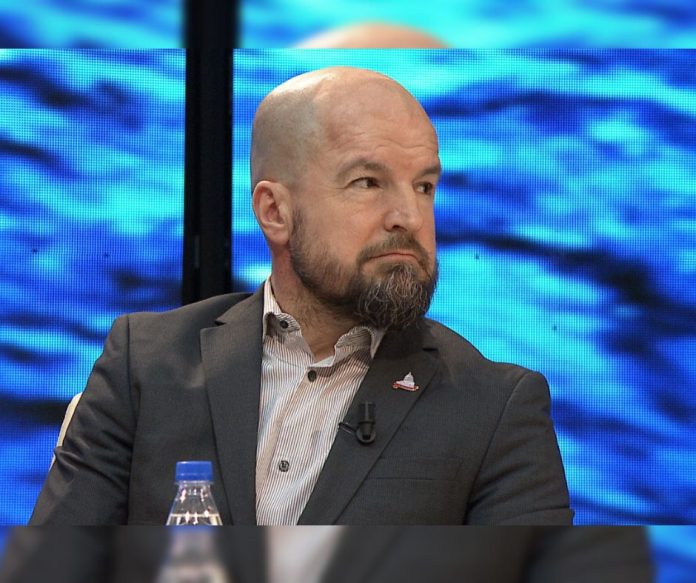By Alfred Lela
In the spring of 2013, Edi Rama and the Socialist Party started circulating the slogan “Saliu is to blame”. The foreign advisers of the PR, apparently, had devised a two-way campaign where the SP was renamed as “Rebirth” – which would be installed after the overthrow of Prime Minister Berisha, 8 years at the head of the country.
Of course, campaign slogans are ‘innocent’, even when they aim to be more aggressive or manipulative than necessary. The slogan was exaggerated when, year after year, even though Sali Berisha had resigned from the DP leadership, remaining a deputy and the cruel author of a Facebook page where the “digital citizen” wreaked havoc with denunciations, the socialists appeared again in media debates and , without any courage declared “Saliu is to blame”. Thus, the slogan was leaving the electoral campaign and its role and was turning into something else. Neither less nor more, but a campaign of political persecution with the aim, first, of character assassination of Sali Berisha and, in the finale, his removal from the scene by all means.
It is the case when a slogan is more than a campaign slogan, a clear political strategy to deus ex machina change a country’s opposition.
The media accusations became the background of a more programmatic and diabolical attempt to target Mr. Berisha, not only as a synonym for the evils of the past, but as an obstacle in the way of the country’s future. The events should be seen from a perspective in retrospect to dispel the fog of surprise for the foreigners installed in Tirana, who were silent before the scandals of the “Rama government”. Cannabis was hailed as a war on drugs, corruption as a battle for its undoing, the violation of human rights as a reformation, and so on.
The increasing presence of Alex Soros’ Open Society and George Foundation, their plan for justice reform and territorial exchanges in Kosovo, the materialized idea of the Open Balkans, etc., saw Sali Berisha almost alone. in the face of a transnational conspiracy.
Edi Rama announced in the Parliament of Albania, months before, the declaration of non grata of Sali Berisha. The same thing in the case of Great Britain. That the governments of the partner countries served the Prime Minister of Albania with information about the political opponent, which he could use to color the obvious slogan “Sali is to blame”, this has bad geopolitical taste to say the least.
A later fact did not ask either about the taste or about the codes, but it revealed more widely and deeply the homo corruptus that the internationals supported in Edi Rama and his spura. The McGonigal file exposed the banal essence of the orchestrated attack on the Democratic Party and Sali Berisha. Lulzim Basha was there only as an accessory of the plan. If we have a coercive material for him, then he will have to choose between his political father, the Democrats and his own head.
Luli surrendered, but not Saliu. This non-surrender also blows up the longest-lived slogan (perhaps) in the political history of the world “Sali is to blame” because, as a rule, the one who is at fault surrenders and retreats, he does not fight in the presence of guilt.
The American and British non-gratas helped Basha and Rama to sing the tiresome and hypocritical chorus that they are the Euro-Atlantic crusaders in this country, but they did not lessen the political nerve of Berisha or his supporters.
In two elections, Sali Berisha proved to be the head of the second most important force in the country, covering his successor and predecessor at the head of the Democratic Party with shame.
Under these conditions, “Sali is to blame” had to be reworked, or more precisely, the blame had to be shifted to Sali, since Sali refused to accept the blame. For this phase of the action, SPAK was set in motion, one of the institutions of the new justice, whose platform (don’t forget!) was drawn up and presented in Tirana by the “Soros Foundation”.
Sali Berisha likes the expression of Xulio Andreoti “they accuse me of everything in Italy, except the Punic Wars”, but among the accusations, the three most central were 97, Gërdeci and January 21. In order to process the “guilt”, however, another issue, less addressed, was chosen, the privatization of the “Partizani complex”. Why? In terms of propaganda, “Partizani” was easier to stick to. Sports loyalties, land and property were united in it – two units that always constitute greed in popular mythology and ‘towers’. Note that the buildings of the complex were called “towers” by the media close to the government, even though they were no more than the usual 9 or 10-story buildings of any neighborhood in Tirana. In this case, the government that was accused of concreting Tirana with towers wanted to create the impression that the towers were actually made by Saliu. Probably, the most evil ‘edge’ of Partizan’s selection had to do with the inclusion of Berisha’s son-in-law, Jamarbër Malltezi. This made the “affair” a family saga and led to old and inexhaustible accusations of the involvement of Berisha’s family members in corrupt acts. So, SPAK’s investigation met Rama’s accusations over the years and non grata.
The circle of political persecution of Sali Beridha was thus completely closed. 10 years after the coming to power of the socialists, even though the DP had already governed less than the SP during the 30 years of post-communism in Albania, even though the scandals of the Rama government belong to the category of epic corruption, the blame had to be delegated to Saliu.
In this sense, that of political efforts, to hit the opponent through justice, Sali Berisha joins the ranks of right-wing politicians like Berlusconi and Trump.
In another sense, Sali Berisha stands alone as a humanist. In the period 1991-1992, when the party he led aimed for power, Sali Berisha invented and used the slogan ‘fellow sufferers and accomplices’. By that he meant that there is no room for revenge. In Enver Hoxha’s Albania, we have all been part of the guilt and suffering. I don’t know where Berisha got that paradigm, but its roots are, for sure, Christian. Berisha presented himself as a leader whose essence was Christian mercy, so not alien to Europe at all.
In this final, in the new perspective that allows us to see in retrospect, Sali Berisha excelled. He should have chosen the Hebrew code ‘an eye for an eye’. Because today, those who were more guilty than Berisha, in the system where, according to the Doctor, everyone was ‘fellow sufferer and accomplice’, return with retribution to declare him as the only one guilty.
Today, Sali Berisha is in this twist of fate. Yesterday’s culprits of communism, dressed in today’s clothes of progressivism, come to tell him that there are no fellow sufferers for him.
Another lesson from Christianity: “No good deed goes unpunished”.












